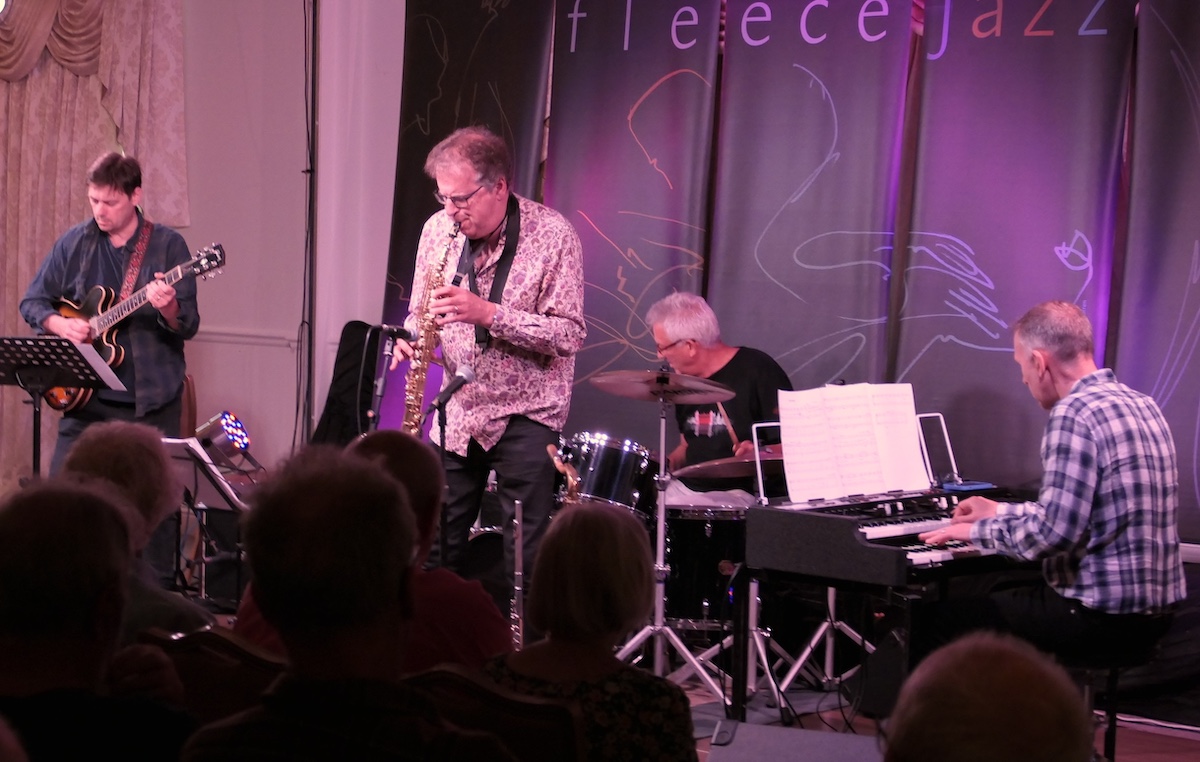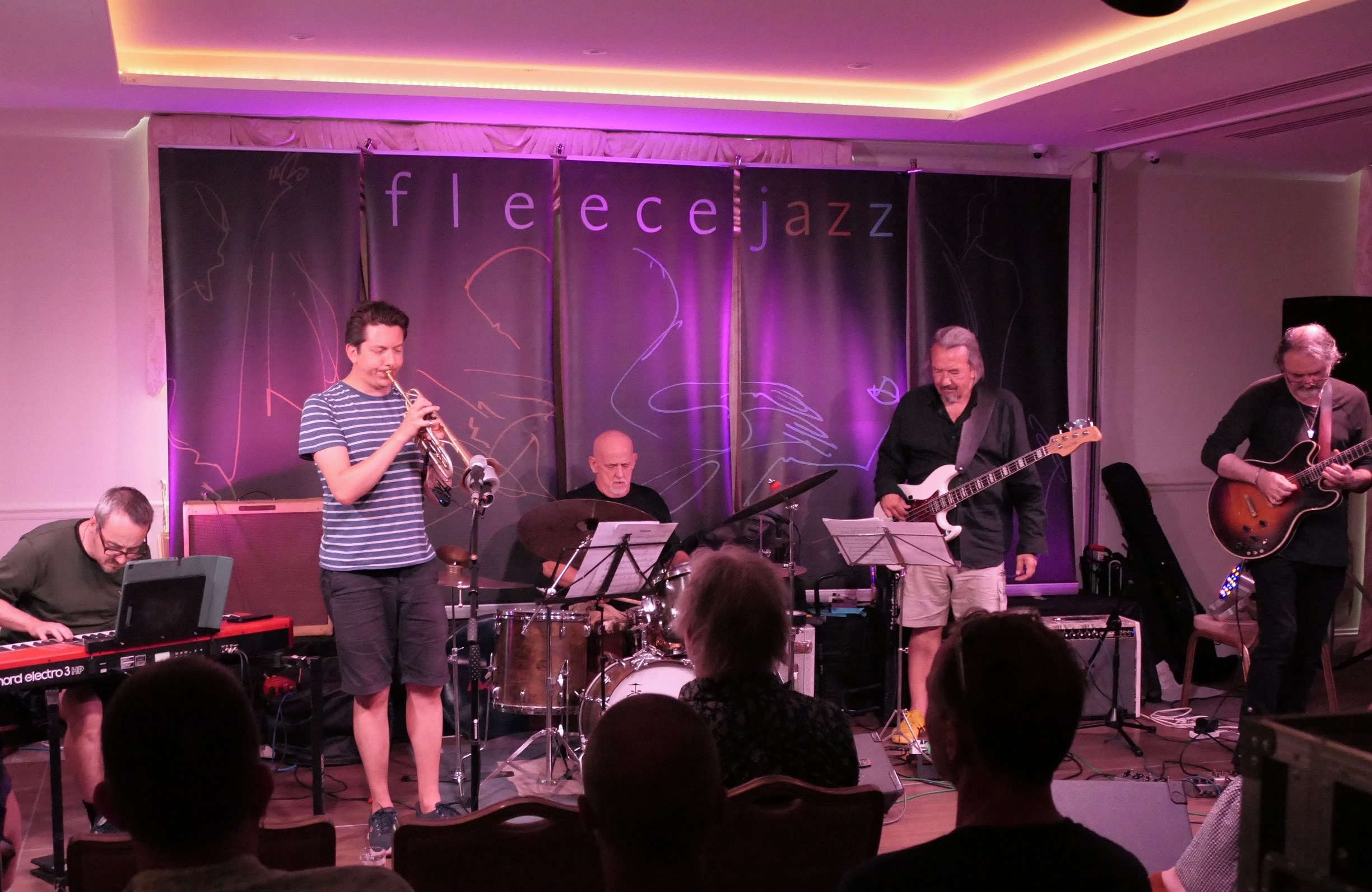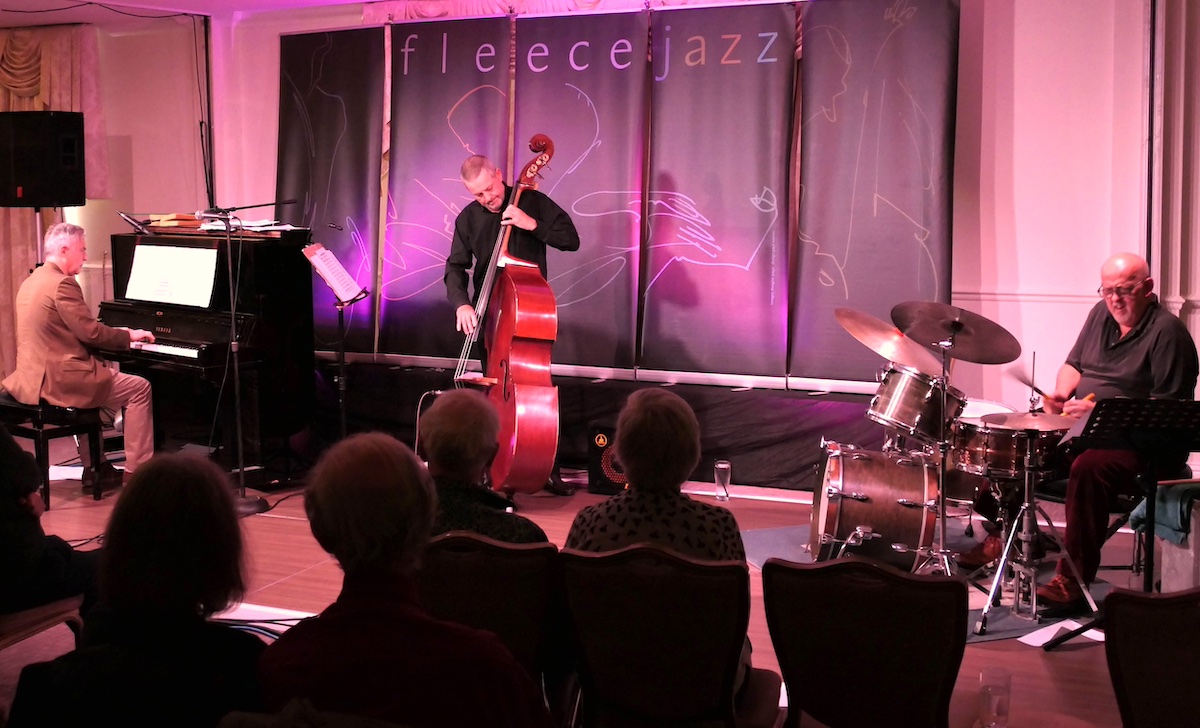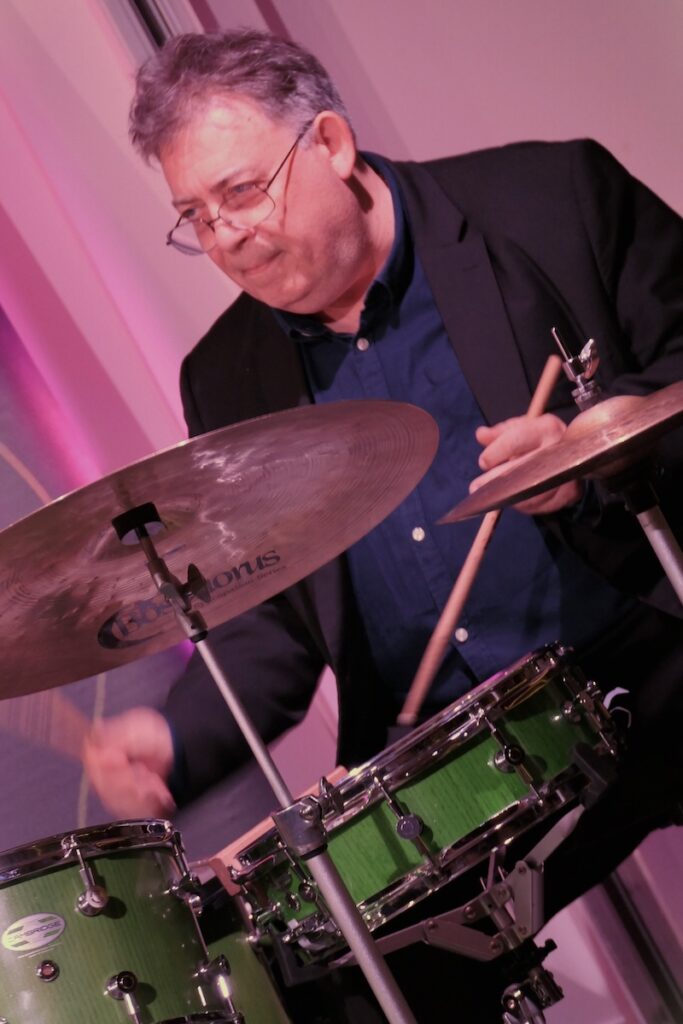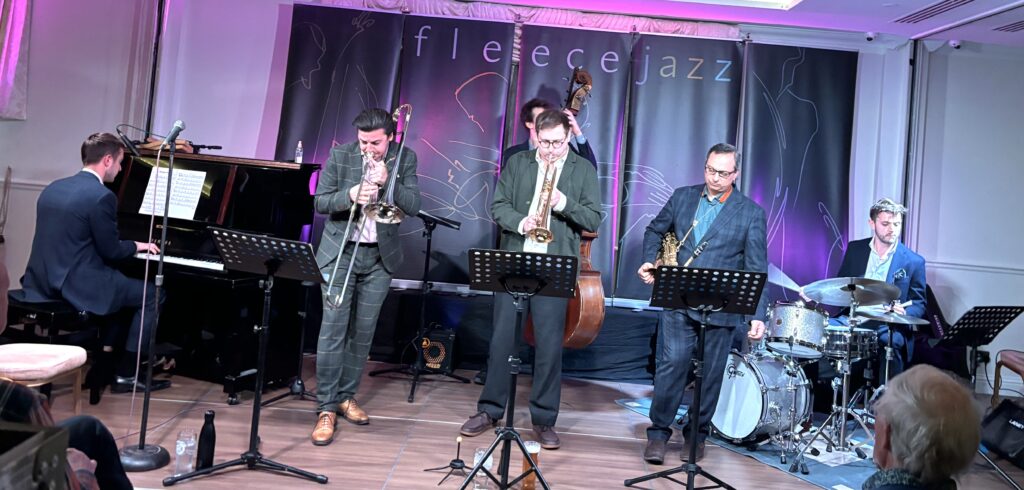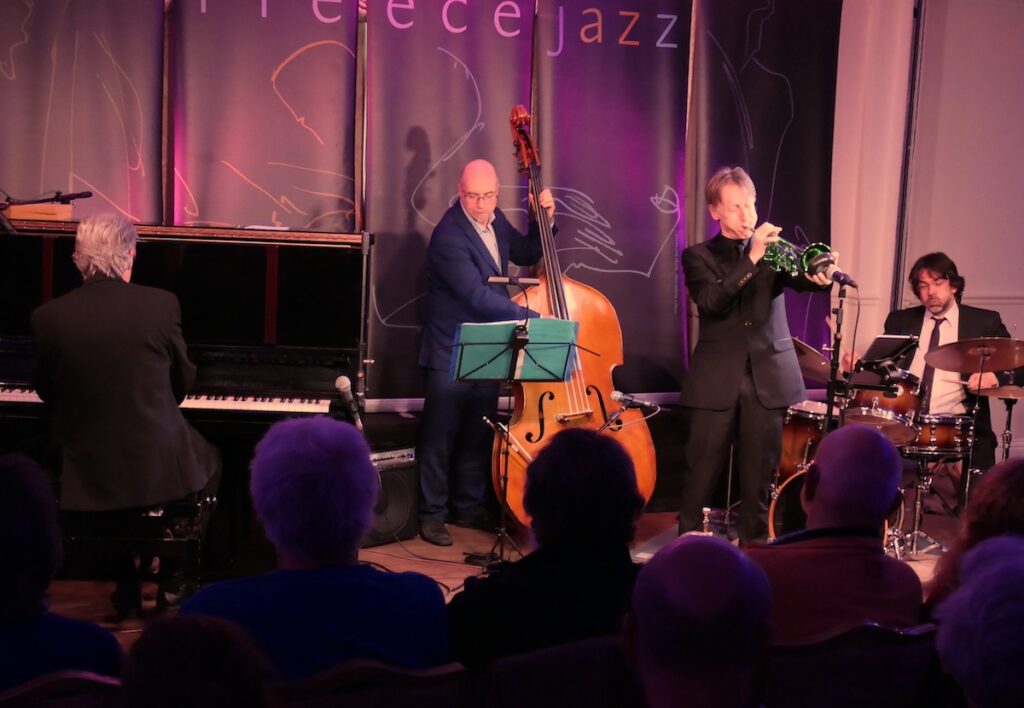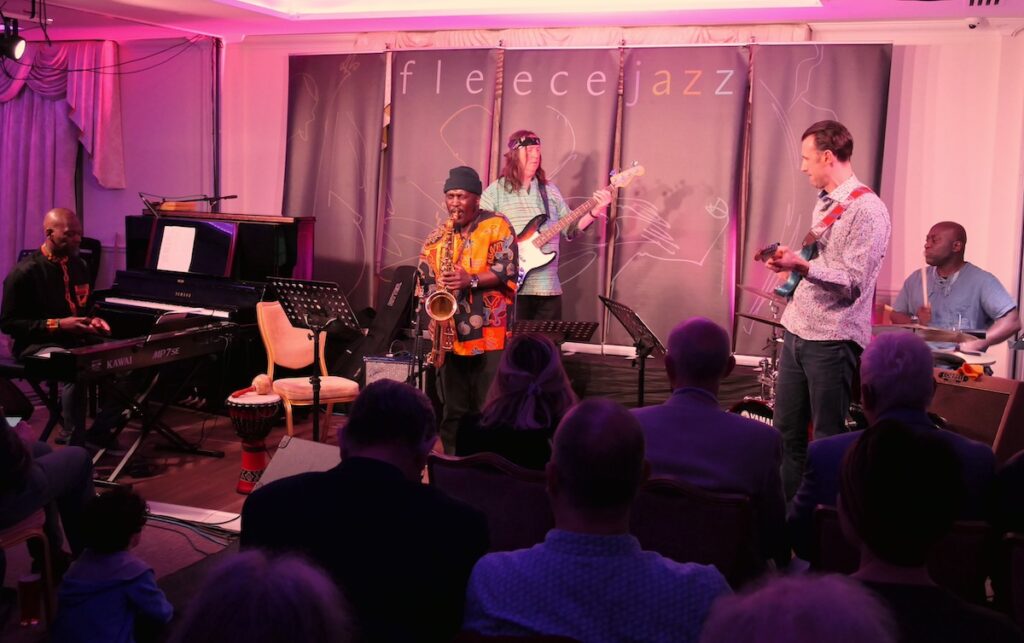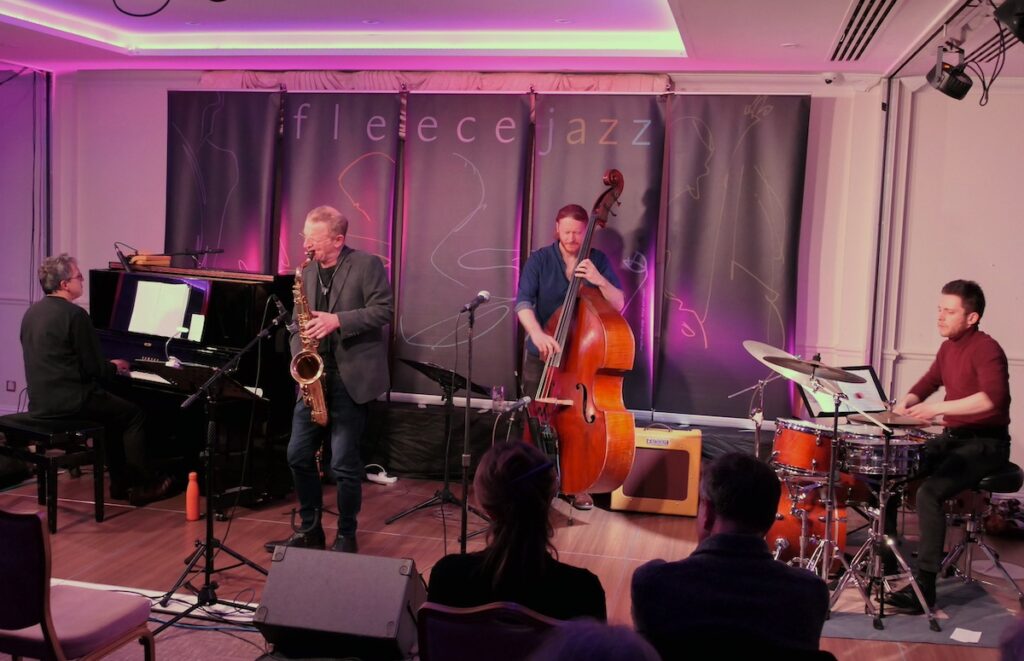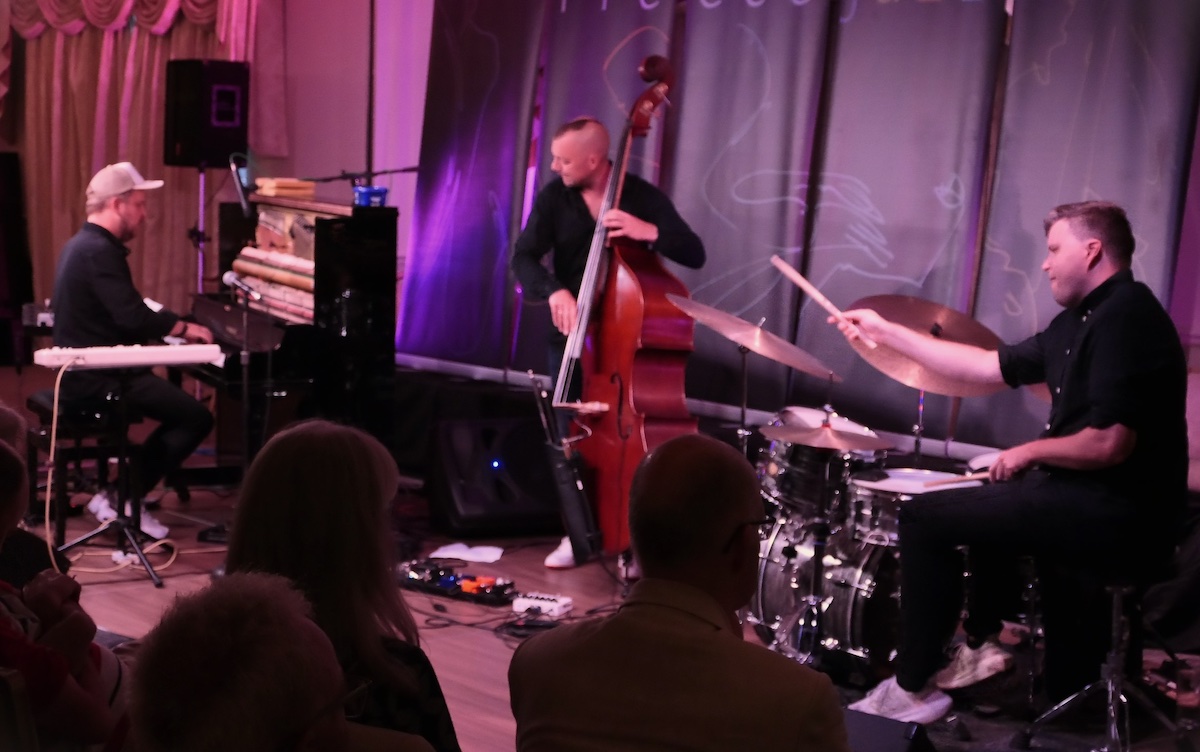
Dave said:
I was very much looking forward to the Oddgeir Berg Trio, and my expectations were exceeded. It was one of those gigs where you could feel the listening almost as well as you could hear the sound.
A friend asked me about the gig, and I told him that it was an easy one to rig: piano micing as usual, bass and a talk mic. Wrong.
The wonderful bassist, Audun Ramo came with a set of stomp boxes and without a bass amp. Between Gerry and I, we rigged a powered monitor for him as his foldback, and took a lead for me at the desk from the monitor. Audun used his bow a lot during the show, beautiful.
The leader, Oddgeir Berg, brought a suitcase full of kit. A music stand with the top horizontal on either side of the piano held the stomp box on his left, and a keyboard on his right. The effects were used gently. Some of the tunes (all by Oddgeir) were about the landscapes of northern Norway, and family past and present. The effects he used evoked the feeling of that scenery, and the emotions of loss.
Lars Bernstein on drums had no electronics. He did have a huge range of sound out of his kit.
My friend asked me to describe the programme in a few words. The best I could do was Norwegian Jazz Noir. A lot of the music was indeed dark, and always intense, but there were jolly tracks too. Oddgeir presented the show with grace and humour.
I truly hope that we book this band again.
On the 28 of August, we welcome back Tony Kofi, complete with the Organization. Peter Cator is the drummer, Simon Fernsby the guitarist and Pete Whittaker the organist. Tony is advertised as using his baritone sax, but I would be surprised if he didn’t bring a trio of saxes. I hope to see you there.
Steve said:
Every music fan should experience a Scandinavian Jazz Piano Trio live gig at least once. There was something for everyone last night at Fleece Jazz as we welcomed back The Oddgeir Berg Trio (last here in March 2023), who are currently on their European tour from their homeland of Norway.
The warmth and charm of pianist Oddgeir Berg compering between numbers set the tone of the whole evening with music to complement his style of delivery. His songwriting injects elements of classical music into melodic piano jazz with occasional rock grooves via distorted electronic ambient sounds reminiscent of the Esbjorn Svensson Trio.
The setlist was largely from the new album: ‘A place called Home’, much of which was about his parents as well as the beauty of his area of Norway. It was the quieter, reflective numbers that drew most approval such as ‘Song for My Mother’ and ‘Triste’ in the first set, but a standout after the interval was the much more animated and extended ‘Vagabond’ which effortlessly segued via some freestyle piano into Joni Mitchell’s ‘Both Sides Now’, reminding us of how indebted Scandinavian Jazz is to its own folk tunes.
The warm lyricism of the music was so rapturously received that all copies of the new album on CD were sold out during the interval. Any vinyl copies had been sent to Germany by the record company, but a new format known as Tap-Tape was available – billed as the lovechild of vinyl and streaming, I saw one brave soul buy one.
THE ODDGEIR BERG TRIO SETLIST, FLEECE JAZZ 14/8/24
All compositions by Oddgeir Berg except for 14
- Here Comes The Toughest
- Into the Mountains (Sula)
- Circles
- As We Wander Around
- Perpetuum Mobile
- Song For My Mother
- Hommage (sic) (Dance Like Nobody’s Watching)
- Triste
* * * * * * *
- Epilogue
- Happiness Is Where You Are
- Where The Sun Never Sleeps
- The Escape
- Vagabond
- Both Sides Now (Joni Mitchell)
- Post Mortem
Encore: Lullaby for A.O.
